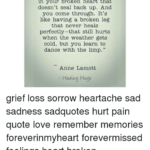A diagnosis of chronic fatigue syndrome isn’t the only health issue that makes you too tired to work! These tips on surviving fatigue due chronic illness apply to all types of diseases.
Fatigue walks hand in hand with chronic illness. Exhaustion, numbness, and low energy are associated with everything from IBD (irritable bowel disease) to MS (multiple sclerosis).
Here’s what Tom Robinson says – he’s a life coach who helps people cope with chronic illness and other health challenges.
“My chronic illness (Crohn’s disease) was in an almost constant flare, instead of being in remission like it is now. I often suffered from severe fatigue, and at that time I only knew three strategies for dealing with it. They were to nap in my car during my lunch hour at work, to get as much rest as possible on the weekends to recover from the previous week and get as ready as I could for the next one, and to learn about all the standard and alternative treatments for my illness and try the ones that seemed like they might help.”
I’ve had plenty ‘o naps in my car – my last one was yesterday, in fact! Not everyone can do it, it’s a fantastic way to get through the work day when you’re too tired to work.
If you can barely drag yourself to work, read From Fatigued to Fantastic. It’s a book by Dr Jacob Teitelbaum – he’s written several books on disease, healing, and stuff like how vitamin B12 is critical to good health, but often ignored.
And here’s some expert advice on surviving fatigue while you’re at work…
Too Tired to Work? How to Survive Chronic Fatigue Syndrome
It’s all about balance, because:
“Even the strongest, fastest, smartest people are helpless when they’re off balance,” says psychology professor and author Stephen Balzac. “They don’t have the foundation to apply their strength or speed.”
If you’re not emotionally and physically balanced, you won’t solve your problems. Instead, you rely on brute force and awkwardness, wrestling for hours or days with problems you could easily solve if you were centered, calm, and energized (balanced!).
But not everyone agrees balance is worth pursuing.
“I don’t believe in ‘balance,’” says Ontario-based business and life coach Kaarina Dillabough. “Society puts too much pressure on us to live a ‘balanced’ life. The only time we’re balanced is when we’re dead. Life brings constant ebbs and flows, ups and downs. The key is to accept imbalance.”
Maybe you strive for balance, or maybe you believe there is a season for everything – including pandemonium, chaos, and even chronic fatigue!
Whether you’re pursuing balance or not, these tips may help you survive chronic fatigue and a job.
Decide if you’re taking on too much work at work
Yes, you can be a workaholic and suffer from chronic fatigue syndrome! According to Health Canada, 1/3 of Canadians describe themselves as workaholics. Employees spend an average of 45 minutes less with their family during workdays in 2005 than they did two decades earlier.
We overwork ourselves for a variety of reasons: perfectionism, feelings of inadequacy, family conditioning, the need for approval, the desire to avoid personal problems, professional competition, or a compulsion we can’t even name.
There’s nothing wrong with working hard, unless it interferes with your health, relationships, or life outside work.
You’re off balance if works trumps all – and if you’re too tired to go to work.
Be aware of the relationship between overwork and illness
“I once worked two jobs due to a takeover,” says Calgary-based small business owner Susanne Alexander-Heaton. “I was repeatedly promised extra help that never came, and I worked the hours it took to get both jobs done. After two back-to-back bouts of bronchitis followed by severe fatigue, my immune system was compromised. I burned out and had to ask for a leave of absence. If I didn’t, my doctor said I’d end up hospitalized. That was a huge piece of humble pie, as I had always been the energetic, enthusiastic one.”
We often wait until it’s too late – a diagnosis of lupus or other chronic disease, a doctor’s dire threats, a hasty decision that has nasty consequences – before realizing the importance of prioritizing what matters most.
Your work directly affects your health.
STOP making “to do” lists – focus on one thing at work today
“Creating work-life balance is harder than just adding things to your ‘to do’ list,” says Gayle Wiebe Oudeh, an Ottawa-based conflict management specialist. “I often challenge clients to start each day by asking two questions: ‘What is really important for me today at work?’ and ‘What is really important for me today outside of work?’ Then, focus on those two things during the day.”
Different things take priority at different times. If you’re too tired to work because of chronic fatigue syndrome, maybe you need to take sick leave or a leave of absence. I know this is easier said than done – but taking time off may be worth the pain and hassle in the long run.
Tune in to your physical, emotional, and spiritual energy
“The most important thing to realize is that time has nothing to do with balance,” says “The Balance Whisperer” and stress management consultant Cathleen O’Connor. “Throw the clock out the window. Instead, focus on energy. Balance is about choosing where to spend your energy – what to say ‘yes’ to and what to refuse.”
Can you say no to certain work tasks, and yes to what makes you feel less tired and more energized?
“It sounds simple, but it works!” says O’Connor. “If hugging your six-year old fills you with zest, then make room for more hugs in your day. If grocery shopping after work exhausts you, then delegate the task or find a store that delivers.”
And of course you need to do keep your disease in remission! If you have an autoimmune disease like colitis or Crohn’s, here are some tips for keeping irritable bowel disease from flaring.
Learn how to balance your health and your job
“Balance doesn’t mean equal,” says Beverly Beuermann-King, a stress and wellness specialist in Little Britain, Ontario. “It means you’re satisfied with how you spend your time, what your priorities are, and how you make decisions about what to prioritize.”
Balance may mean simplifying your work tasks, decluttering your home space, or hiring someone to do chores. It may be a sacrifice to pay someone to do something you normally do yourself, but it’s worth it if it allows you to spend time the way you want.
How do you cope with the physical and emotional exhaustion that comes with chronic fatigue syndrome?
To learn how a medical writer lives with this chronic disease, read Chronic Fatigue Syndrome – Maija’s Tips for Coping With CFS/ME.

